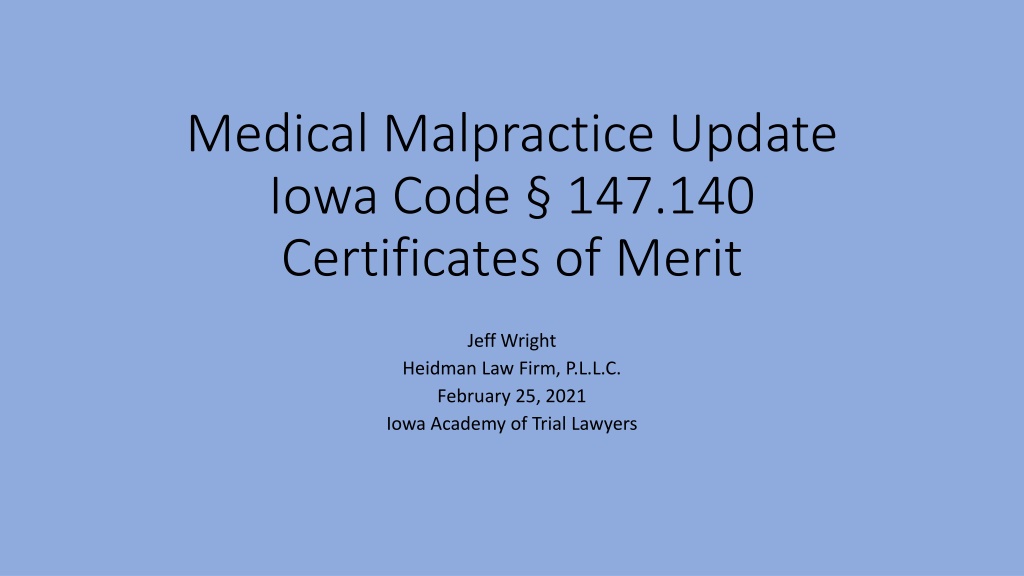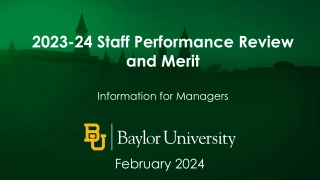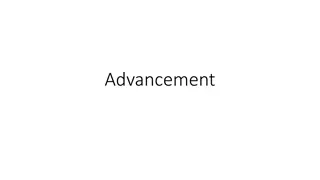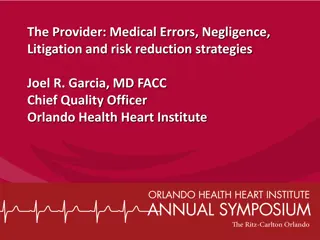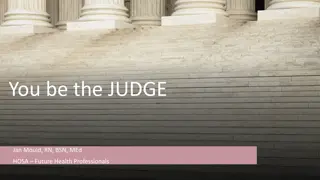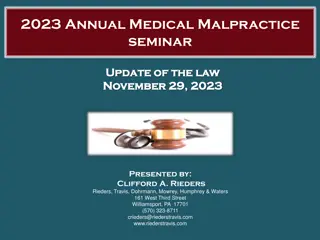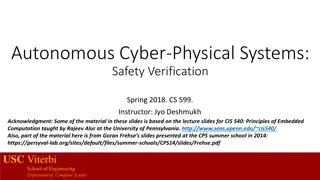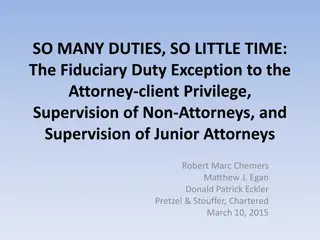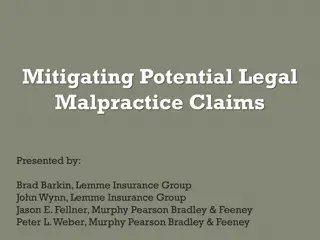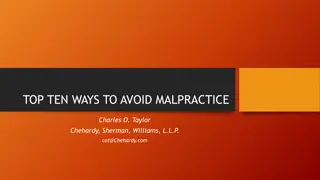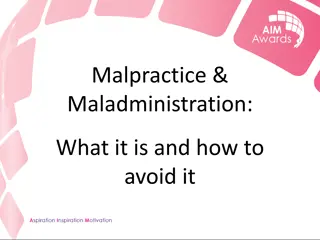Understanding Iowa Code 147.140: Certificates of Merit in Medical Malpractice Cases
The Iowa Code 147.140 outlines the requirements for certificates of merit in medical malpractice cases, specifying when and how they are necessary, the content they should include, and the strict timelines for submission. The interplay with section 668.11 is discussed, highlighting the differences in timelines and standards between the two statutes. The importance of expert testimony and compliance with statutory requirements is emphasized to prevent frivolous claims in medical malpractice actions.
Download Presentation

Please find below an Image/Link to download the presentation.
The content on the website is provided AS IS for your information and personal use only. It may not be sold, licensed, or shared on other websites without obtaining consent from the author. Download presentation by click this link. If you encounter any issues during the download, it is possible that the publisher has removed the file from their server.
E N D
Presentation Transcript
Medical Malpractice Update Iowa Code 147.140 Certificates of Merit Jeff Wright Heidman Law Firm, P.L.L.C. February 25, 2021 Iowa Academy of Trial Lawyers
When Required Required in any action: (1) For personal injury or wrongful death; (2) Against a health care provider; (3) Based upon alleged negligence in the practice of their profession, occupation, or patient care; (4) Where expert testimony is required to establish a prima facie case. The certificate of merit must be served within 60 days of defendant s answer and must be in the form of a signed affidavit by an expert witness, alleging a breach of the standard of care.
Required Content The expert must meet standards set forth in 147.139 This includes the requirement that the expert s medical expertise must be substantially similar to that of the Defendant (e.g. surgeon versus radiologist). The certificate must be signed under oath and contain: A statement of familiarity with the standard of care. A statement that standard of care was breached by the defendant. A separate certificate shall be served regarding each defendant named in plaintiff s petition.
Strictly Interpreted The 60-day period may only be extended either by party agreement or by the court for good cause and in response to a motion filed by the plaintiff prior to expiration of the 60 days. Plaintiff acting pro se shall be bound by those provisions as if represented by an attorney. The purpose for the affidavit is to show plaintiff has a colorable claim. The certificate of merit serves to weed out frivolous cases early in the proceedings.
Interplay between 147.140 and 668.11 Both 668.11 and 147.140 apply to medical malpractice actions ( 147.140 does not eliminate the requirements of 668.11). Iowa Code 147.140(2). Timeline difference 668.11 Designation 180 days after defendant s answer. 147.140 Certificate of Merit 60 days after each defendant s answer.
Interplay between 147.140 and 668.11 (cont d) Good cause 147.140 Certificate of Merit Extending sixty-day deadline requires good cause and a motion filed prior to the expiration of the 60 days. 668.11 substantial compliance standard of compliance compliance in respect to essential matters necessary to assure the reasonable objectives of the statute has been applied to 147.140 cases. A result of the novelty of 147.140 and the lack of appellate courts decisions interpreting it.
Interplay between 147.140 and 668.11 (cont d) Good cause under 668.11 Drawn from standard used for vacating default judgments. 668.11 provides certainty about experts which prevents last- minute dismissals and protects against frivolous lawsuits. Factors in determining whether good cause exists: The seriousness of the deviation from the statutory deadline Prejudice to the defendant Defense counsel s actions Good cause must be more than an excuse, a plea, apology, extenuation, or some justification. A simple oversight by plaintiff s counsel is insufficient.
Interplay between 147.140 and 668.11 (cont d) Distinct Purposes and Requirements of 147.140 and 668.11 147.140 and 668.11 require the disclosure of different information: 147.140 certificate of merit affidavit need not necessarily be completed by the expert whom the party eventually designates as its expert. However, the certificate should indicate whether the plaintiff intends to eventually designate its certificate of merit affiant as an expert witness.
Shall means SHALL SHALL Failing to substantially comply with the certificate of merit requirements shall result, upon motion by defendant, in dismissal with prejudice. Even if dismissal with prejudice is a harsh result, shall imposes a duty on the court, leaving it no discretion. Substantial compliance is a fairly high bar, requiring inclusion of the essential matter necessary to achieve the objective of the certificate of merit.
Unsuccessful District Court Arguments by Plaintiffs Inapplicable because acts or omissions arose before certificate of merit requirement was enacted on July 1, 2017, despite Plaintiff s death occurring after July 1. The 60-day clock does not start until every defendant has filed an answer. The court, instead, found the plaintiff must serve a separate certificate of merit on each particular defendant within 60 days of their Answer. Good cause and a request for extension within the 60-day period is required to extend the period a mere showing of good cause by the Plaintiff is insufficient.
Unsuccessful District Court Arguments by Plaintiffs (cont d) The court rejected the argument that a certificate of merit is unnecessary for claims which do not require expert testimony to prove breach, because expert testimony is still needed as to causation. Submitting a certificate of merit 118 days after defendant s Answer, 58 days after the 60-day deadline had passed, was not substantial compliance. Surgery and radiology are not a substantially similar expertise such that a surgeon may satisfy the certificate of merit requirement by alleging a radiologist breached the standard of care.
